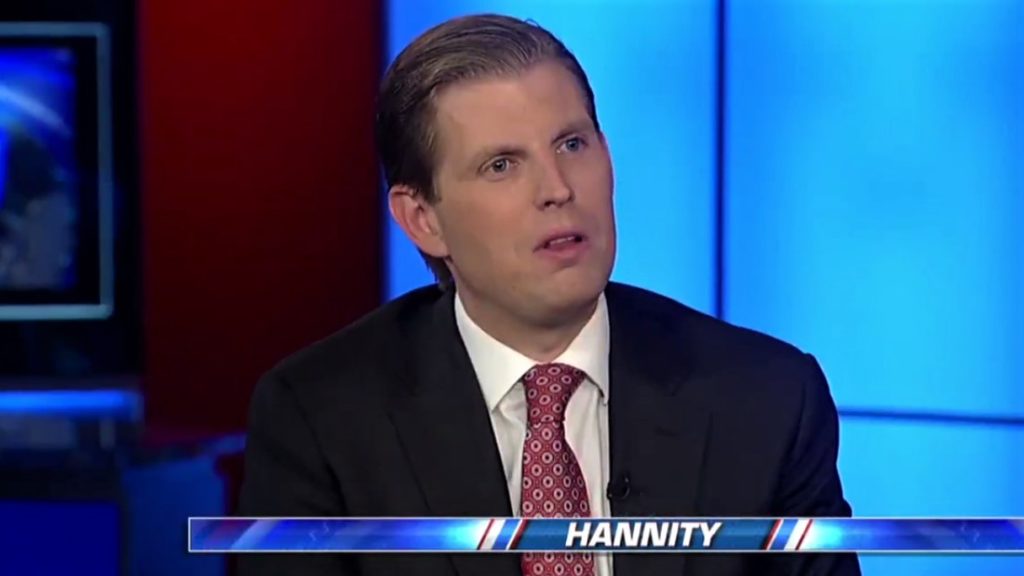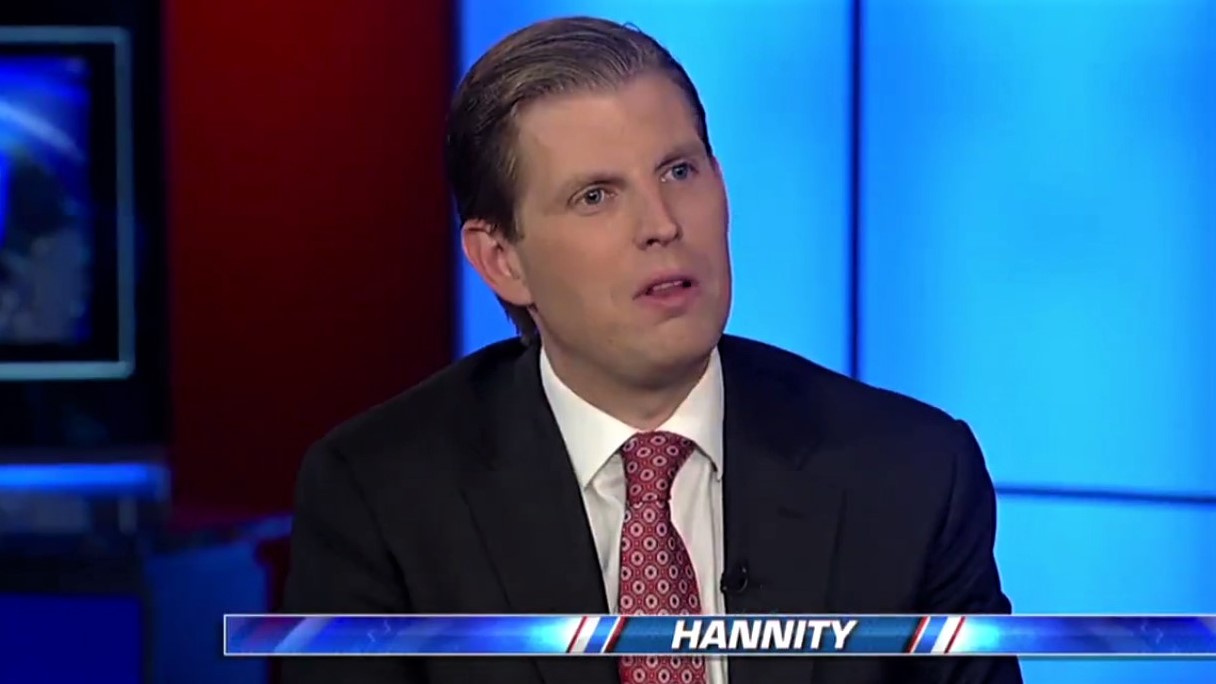Earlier this month, Eric Trump, the president’s son, was interviewed on Fox News by Sean Hannity.
“Morality’s just gone,” Trump said, “morals have flown out the window and we deserve so much better than this as a country.”
Trump was specifically referring to Democrats criticisms of his father the president, even going so far as to say, “To me, they’re not even people.”

Considering that President Trump is currently facing lawsuits from attorneys general from Maryland and the District of Columbia, as well as a similar suit brought by Citizens for Responsibility and Ethics in Washington due to violations of the Emoluments Clause of the Constitution, not to mention the vulgar disrespect the president has demonstrated to others, I think the younger Trump might benefit from taking an ethics class and educate himself about the nature of morality and the ethical rules that govern society in general and Washington, in particular.
Using the younger Trump’s statement as a basis, Pulitzer Prize-winning columnist Thomas Friedman had an interesting conversation with Dov Seidman who writes on how companies can build ethical cultures.
“What we’re experiencing is an assault on the very foundations of our society and democracy — the twin pillars of truth and trust,” Seidman told Friedman. “What makes us Americans is that we signed up to have a relationship with ideals that are greater than us and with truths that we agreed were so self-evident they would be the foundation of our shared journey toward a more perfect union — and of respectful disagreement along the way. We also agreed that the source of legitimate authority to govern would come from ‘We the people.’
“Today, we’re not just deeply divided, as we’ve been before, we’re being actively divided — by cheap tools that make it so easy to broadcast one’s own ‘truths’ and to undermine real ones,” Seidman argued.
What’s happening now, Seidman says, ‘is either sending us into comfortable echo chambers where we don’t see the other or arousing such moral outrage in us toward the other that we can no longer see their humanity, let alone embrace them as fellow Americans with whom we share values.
“Social networks and hacking also ‘have enabled us to see, in full color, into the innermost workings of every institution and into the attitudes of those who run them,’ noted Seidman, ‘and that has eroded trust in virtually every institution, and the authority of many leaders, because people don’t like what they see.’ ”
With truth and trust diminished, Seidman says that we now face a “crisis of authority, itself.” While business, social, political, and educational institutions rely on formal authority to function, “Leaders with moral authority understand what they can demand of others and what they must inspire in them. They also understand that formal authority can be won or seized, but moral authority has to be earned every day by how they lead. And we don’t have enough of these leaders.”
What Eric Trump is suggesting is that formal authority should supersede moral authority. So, when others disagree, as we do in a democratic society; when institutions have rules to be followed; when agencies investigate potential improprieties, they should, according to young Trump, acquiesce to the formal authority – in this case, the president.
Here then, is a mini-lesson I offer young Mr. Trump, as discussed thousands of times by ethicist Michael Josephson.
“Ethics refers to standards of conduct which indicate how one should behave based on moral duties and virtues arising from principles about right and wrong. Ethics is an action concept; it is not simply something to think and argue about. It is about conduct and behavior.”
Ethics is about looking at the impact our decisions may have on others. It often requires the necessary character and courage to do the right thing even when there is a personal cost involved such as removing oneself from all financial and business ties before entering a political office that requires you to put the needs of the public ahead of personal gain.
The ethical value of respect, Josephson writes, “imposes a moral duty to treat all persons with respect and dignity.”
An ethical person actively demonstrates courtesy, civility and decency in word and deed. They accept other people’s beliefs without prejudice.
The ethical value of responsibility includes accountability and self-restraint.
“An accountable person,” Josephson writes, “does not seek to shift blame to others… [they] consider the possible consequences ahead of time and accept personal responsibility for the foreseeable consequences of their actions and inactions. They also seek to lead by example.”
The value of self-restraint means demonstrating “the willingness to voluntarily delay gratification. Ethical people,” Josephson continues, “do not adopt a win-at-any-cost attitude, because if you are not willing to lose, you have to be willing to do whatever it takes to win, even if it is not ethical.
“Ethical people maintain self-discipline and self-control, making decisions that take into account and advance long terms interests.”
And if you’re in a position of public trust, you have a moral duty to serve the interests of all, not just the few.
Most importantly, Josephson concludes, “As much as people are willing to hold others to high ethical standards and apply strict tests about whether the behavior of others is proper, perhaps the biggest challenge is for people to hold themselves accountable to those same standards.”
In terms of personal criticism, President Harry Truman summarized it best: “If you can’t stand the heat, get out of the kitchen.”
End of lesson.
Comments











